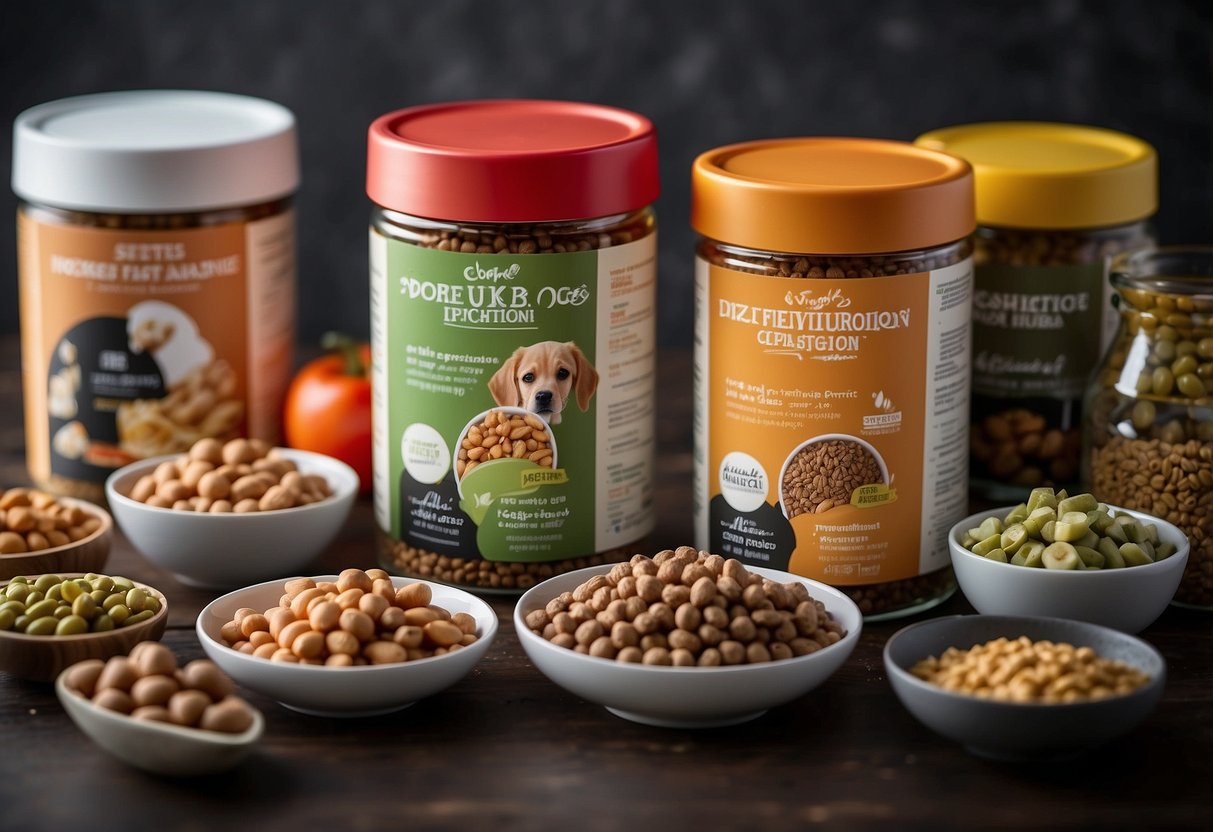
Common Food Allergies and Intolerances
Dogs, like humans, can suffer from food allergies and intolerances. Some of the most common allergens include beef, dairy, wheat, egg, chicken, lamb, soy, pork, rabbit, and fish.
Symptoms of food allergies in dogs often manifest as skin issues. These may include itching, redness, and hot spots. Digestive problems such as vomiting, diarrhea, or gas can also indicate an intolerance.
Identifying a food allergy or intolerance usually involves an elimination diet. This means removing suspected allergens from the dog’s food for a period and then slowly reintroducing them one by one.
Veterinarians can also conduct allergy tests. These tests help pinpoint specific allergens and can be invaluable in managing a dog’s diet.
Chronic ear infections or persistent licking of paws may also suggest a food-related issue. Owners should be attentive to such signs and consult with a vet for proper diagnosis and treatment.
Reading ingredient labels on dog food can help avoid known allergens. Many commercial dog foods offer hypoallergenic options. These are specially formulated to minimize the risk of allergic reactions.
It’s essential to address any suspected food allergies or intolerances promptly. Left untreated, these issues can lead to more severe health problems. Regular check-ups and open communication with a veterinarian are crucial for maintaining a dog’s health.
The Debate Around Grain and Gluten
Grain and gluten in dog diets have been contentious topics among pet owners and veterinarians. Some believe that grains like corn, rice, and wheat provide essential nutrients, while others argue that these ingredients may lead to allergies and digestive issues in some dogs.
Proponents of grain-inclusive diets argue that grains can be a good source of carbohydrates, fiber, and essential fatty acids. They also point out that grains have been part of the canine diet for centuries and that many dogs thrive on grain-inclusive foods. Studies have shown that grains can support digestive health and provide energy.
On the other hand, advocates for grain-free and gluten-free diets believe that grains are unnecessary and may contribute to various health problems. They suggest that dogs are primarily carnivorous and would benefit more from a diet focused on proteins and vegetables. Some dogs may indeed exhibit sensitivities to grains or gluten, leading to skin problems and gastrointestinal discomfort.
In contrast, not all dogs have adverse reactions to grains and gluten. Proper diagnosis by a veterinarian can determine if a specific dog has sensitivities. In such cases, an elimination diet may help identify triggers.
Brands offering both grain-inclusive and grain-free options aim to cater to diverse needs. Pet owners should consult with a veterinarian to make an informed decision based on the individual health and lifestyle of their dog. Choosing high-quality ingredients and monitoring their dog’s reaction to different diets is crucial for their well-being.
Supplements for a Balanced Dog Diet
Supplements can play a vital role in filling nutritional gaps and supporting specific health needs in dogs. This section addresses key supplements that benefit joint health and improve skin and coat condition.
Joint Health Supplements
Joint health supplements can greatly aid dogs with joint issues or those prone to such problems. Glucosamine and chondroitin are two of the most common ingredients in these supplements. They help maintain the health of cartilage, which cushions joints and promotes flexibility.
Omega-3 fatty acids, often derived from fish oil, also contribute to joint health. They possess anti-inflammatory properties that can reduce pain and swelling in joints. These supplements are particularly beneficial for older dogs or breeds susceptible to joint conditions.
Another ingredient to consider is MSM (Methylsulfonylmethane). MSM provides sulfur, which is a key component in joint health. It can enhance the effects of glucosamine and chondroitin, promoting overall joint mobility and comfort.
Skin and Coat Enhancements
Supplements designed for skin and coat health can make a significant difference in a dog’s appearance and comfort. Omega-3 and Omega-6 fatty acids are essential for maintaining a shiny coat and healthy skin. These fatty acids help reduce inflammation and prevent dryness and itching.
Biotin, a B-vitamin, is another important supplement for skin and coat health. It supports the metabolism of fats and proteins, which are crucial for skin and fur. A biotin deficiency can lead to dull coats and skin problems.
Zinc is equally important. It aids in cell regeneration and repair, which are vital for maintaining skin integrity. Adequate zinc levels help prevent hair loss and keep the coat thick and vibrant.
Quality skin and coat supplements can greatly enhance a dog’s overall appearance and well-being.



